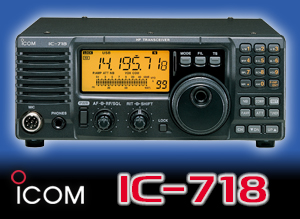Propagation News – 17 November 2019
Last week was pretty good in terms of HF propagation. Other than a slight blip in the Kp index on Monday, the 11th, when it rose to three due to a weak coronal hole stream, geomagnetic conditions remained settled.
The Sun remained spot-free all week, although a new region was noted on the 13th. Region 2752 rotated into view on the south-western edge of the Sun’s disk, but we will have to wait and see how it develops. The magnetic layout and high latitude location of this region associates it with the new Solar Cycle 25. This is the second such region in the past few weeks, but don’t get too excited as going by previous experience it may disappear within a couple of days.
Maximum usable frequencies were often above 21MHz at times, according to propquest.co.uk, which had more to do with better autumnal seasonal ionospheric conditions than increased solar activity.
Next week NOAA has the solar flux index pinned at 70 or 71 all week, with unsettled geomagnetic conditions from the 20th to the 24th.
At the time of writing a large coronal hole was just turning to be Earth-facing, which could lead to disrupted geomagnetic conditions, perhaps beginning late on the 16th. As always check for a pre-auroral enhancement as the solar wind first hits the Earth and then expect conditions to decline with reduced MUFs and noisy bands as any potential geomagnetic storm develops.
VHF and up
This coming week is a continuation of the long run of unsettled wet weather. Microwave band stations will be the main beneficiaries of this rain as it should bring some good rain scatter. The rain is likely to be in the form of heavy showers, which at this time of the year are mostly around the coasts and a short distance inland.
The many radar displays online will give you plenty of help tracking down the stronger radar echoes, which might give some useful scatter points. More widespread frontal activity will also be present at times, so giving more rain scatter path options to explore.
It is hard to find any strong highs on the charts for next week, so tropo will not be a big player, although there are times, in between the areas of low pressure, when a weak ridge may give a temporary but slight enhancement.
The Leonids meteor shower is at its maximum this Sunday, so look out for the better meteor scatter conditions to peak overnight and extend into next week.
It’s a good EME weekend, and the final ARRL VHF/UHF contest is under way. Moon declination is at its highest, so we have long Moon windows and high Moon elevation, but as we are still a week from perigee—the point of the Moon’s closest approach—losses are still quite high. 144MHz sky temperature is low for most of the week.
Category: GB2RS Propagation News










